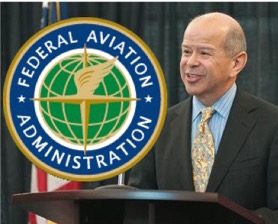 For the drone industry, anxiously awaiting the release of Part 107 long promised for a “late spring” timeframe, the furor over the FAA’s drone registration program seems years ago. But for John Taylor, the Baltimore man who filed suit against the FAA and FAA Administrator Michael Huerta challenging drone registration, the battle continues.
For the drone industry, anxiously awaiting the release of Part 107 long promised for a “late spring” timeframe, the furor over the FAA’s drone registration program seems years ago. But for John Taylor, the Baltimore man who filed suit against the FAA and FAA Administrator Michael Huerta challenging drone registration, the battle continues.
Taylor has filed his brief, and the FAA must respond by July 21. Taylor will then reply by early August, after which oral arguments will be scheduled.
The outcome is uncertain: while there are valid arguments over the legitimacy of the drone registration program, Taylor, although an attorney himself, lacks the financial and resource backing of a larger organization. (Non-profit group Tech Freedom has also filed suit against the drone registration program.) The commercial drone industry – and it’s stronger Washington advocates – seem to have moved on. But Taylor’s suit may assume a greater importance in light of the recent reports of the FAA’s enforcement against hobby drones; with over 20 cases of fines and punitive action taken against recreational operators.
Taylor’s complaint is based on the fact that the FAA dug up an old – and heretofore unused – law in order to justify the drone registration program, when they decided to enforce the idea that model aircraft fell under the same rules as civil aircraft.
“For over a century, the FAA and its predecessors recognized recreational model aircraft as something entirely separate and apart from civil aircraft,” says Taylor’s brief. “The FAA realized it had no authority over these toys and encouraged only “voluntary compliance” with safety guidelines that largely sought to keep recreational model aircraft out of the navigable airspace properly controlled by the FAA.”
Taylor claims that this leap of logic is unreasonable, and indeed ridiculous: “…broad new interpretation of the definition of ‘aircraft’ would similarly make Frisbees, paper airplanes, and other small flying toys subject to the myriad statutes and regulations applicable to ‘aircraft.’”
In addition, Taylor claims that the FAA violated the terms of the Administrative Procedure Act when it failed to allow for the required comment period. While the comment period may be waived in the case of an emergency, Taylor says that there was no good reason for shortening the comment period in this situation:
In adopting the Interim Final Rule, the FAA failed to follow the notice and comment requirements of the Administrative Procedure Act. The FAA claimed it had “good cause” to ignore these requirements, under the theory that it would be impracticable and contrary to public interest to do so. However, there was no impracticality, nor imminent threat to life or property, to justify bypassing that statutory requirement, and any timing concerns were of the FAA’s making.
Source link
 Unmanned Aerial Vehicle The latest drone news
Unmanned Aerial Vehicle The latest drone news



